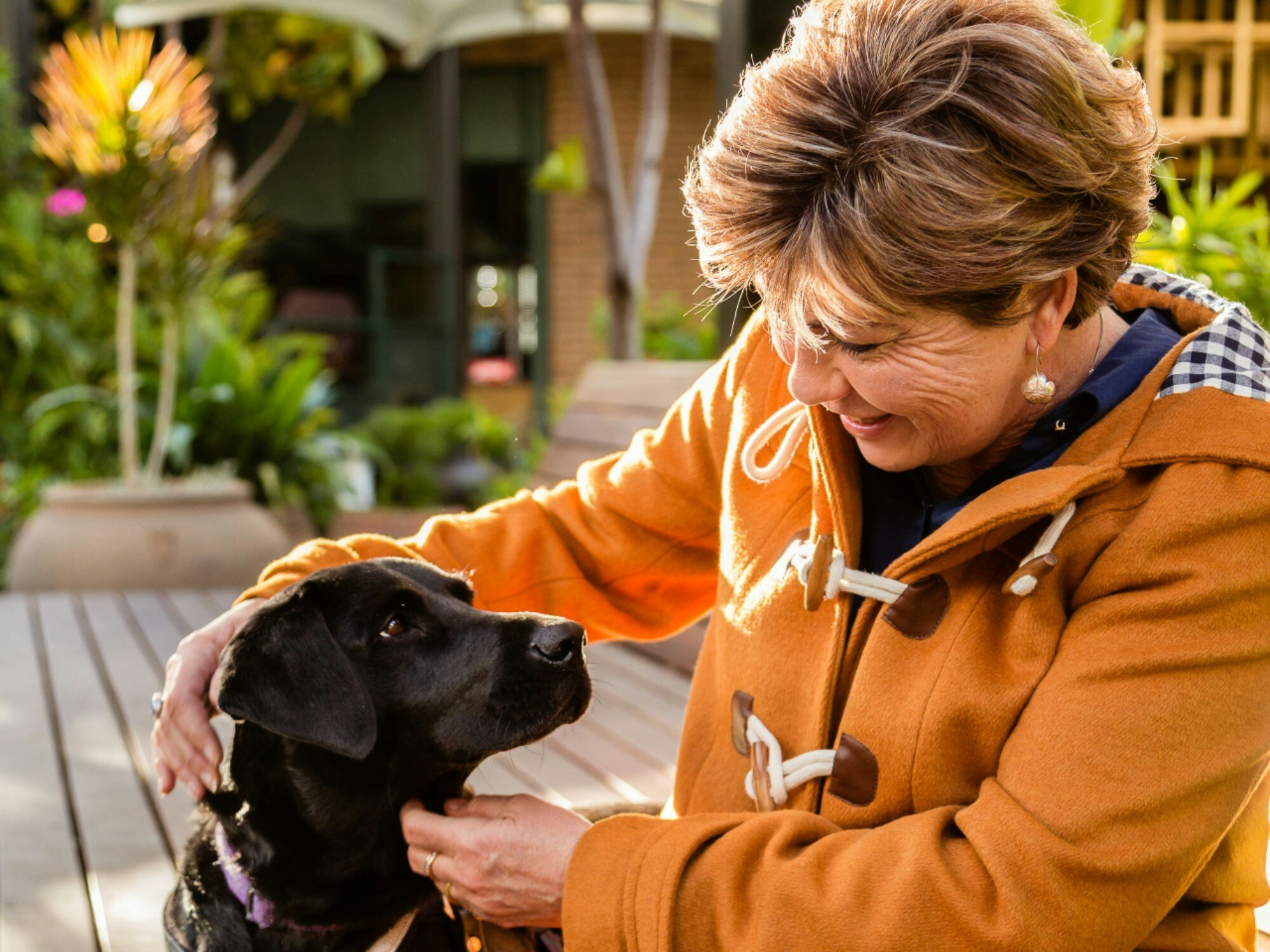Case study: Vision loss no barrier for Colleen

Colleen, a former fitness instructor with type I diabetes, was fit and healthy until signs of heart disease – a major complication of diabetes developed in her 40s.
When Colleen underwent a heart transplant, things didn’t quite go to plan. After four days on life support Colleen woke up on the fifth day and couldn’t see.
She had suffered ischemic optic neuropathy, a condition where blood loss permanently damages the optic nerves that send signals from the eyes to the brain, enabling sight.
Leaving her with five percent peripheral vision in her right eye and no usable vision in her left eye, Colleen took the devastating news on the chin.
“I’ve always played the cards that are dealt to me, so when I woke up and I had no vision, they said I’d been asleep for almost a week and my brain might take a bit of time to adjust,” she says.
“So, as the days went on and there wasn’t any improvement, it really didn’t faze me, and when I started thinking this might be permanent, I just thought, ‘Well if this has happened, it’s going to open up new doorways’.”
And they sure did, to stay fit Colleen took up swimming, challenging herself to compete in the 2018 Transplant Games where she took out gold!
Vision Australia’s involvement with Colleen began when she was still in hospital, starting with small, practical things like ensuring her mobile phone was more accessible for her. It then progressed to mobility training with her hot pink long cane and giving Colleen visual and tactile aids and a range of handy gadgets that keep her active around the home and in the wider community. They also supported Colleen with the NDIS, navigating the system together.
In 2018, Colleen was matched with Seeing Eye Dog Xian through Vision Australia Seeing Eye Dogs. “As a fully trained dog guide, she helps me get here, there and everywhere. Xian has given me even greater independence and helps me to get around safely.”
Colleen adds, “Vision Australia is fabulous. They are really supportive. They are always on the phone if you need them, or offering anything new that might be handy.”